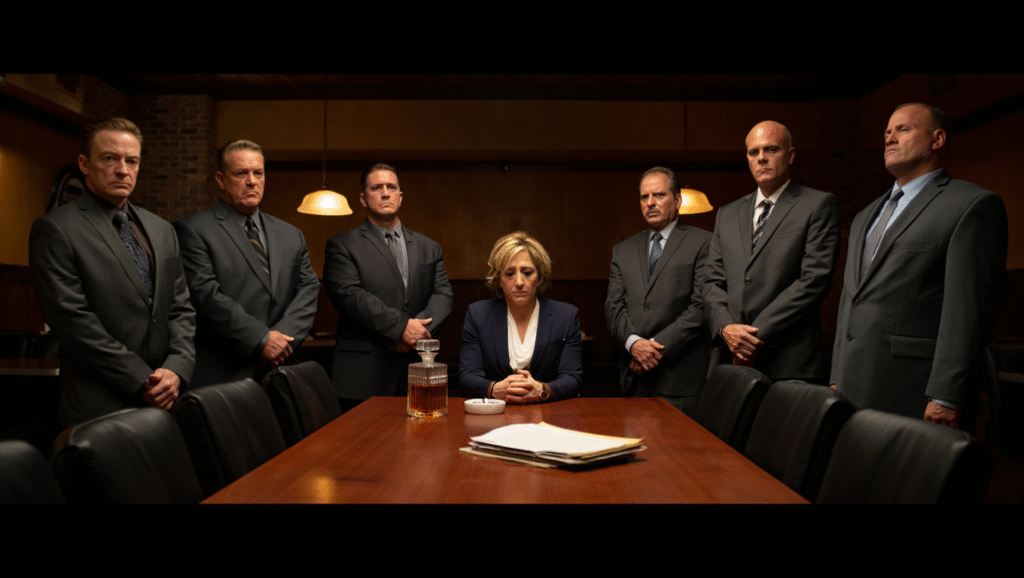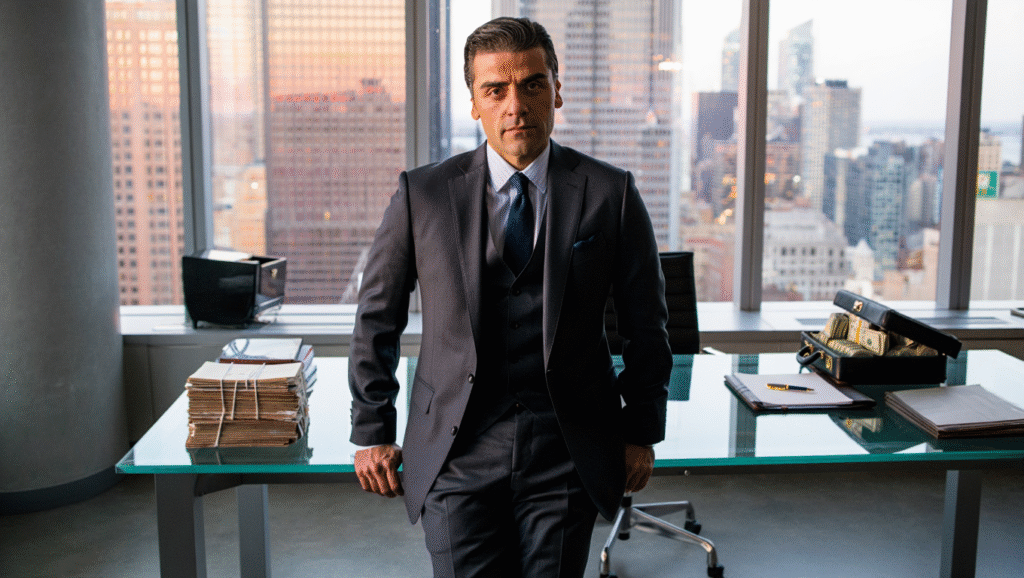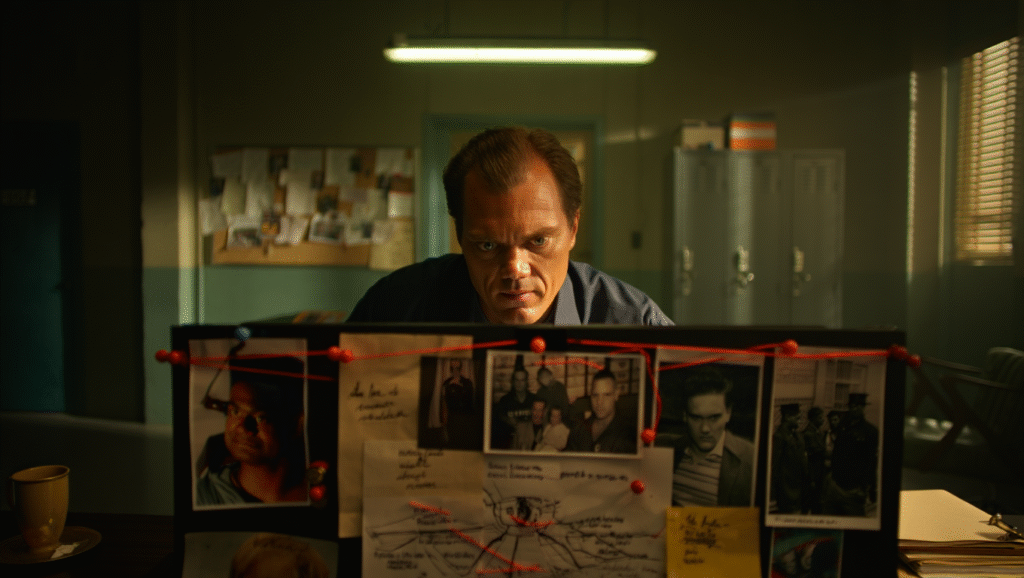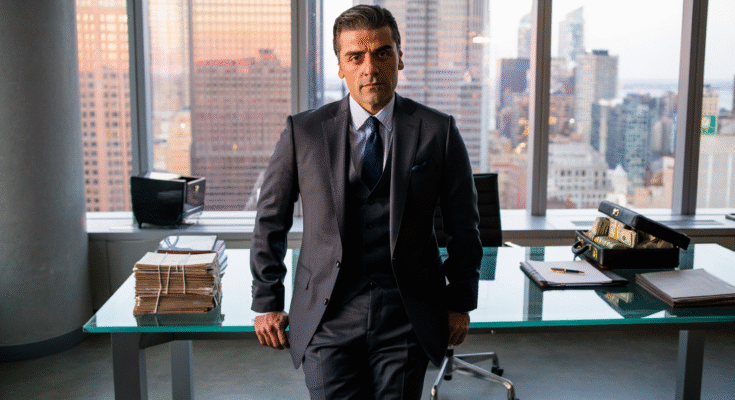When The Sopranos cut to black in 2007, it left audiences in stunned silence. That abrupt ending became one of television’s most debated moments, cementing the series as the gold standard of prestige drama. Now, nearly two decades later, The Sopranos: Season 7 pulls us back into North Jersey, not to resolve Tony’s fate, but to explore the brutal aftermath of his absence. The result is a revival that’s less about nostalgia and more about reckoning — with power, legacy, and the ghosts that refuse to stay buried.

The season’s premise is simple yet devastating: Tony Soprano is gone, but the empire he built teeters on the brink of collapse. What lingers isn’t stability, but shadow — his influence felt in every backroom deal, every whispered threat, every betrayal. By refusing to resurrect Tony, the writers force us to confront what happens when a myth dies but the machinery it powered keeps running. It’s a story about succession, not salvation.
Edie Falco delivers a tour de force as Carmela, now thrust into a matriarchal role she never sought. Her performance balances vulnerability with cold calculation; Carmela struggles to protect her children while maintaining the illusion of control over a family empire already fraying at the seams. Her arc is the show’s tragic heart — a woman trapped between morality and survival, between preserving Tony’s myth and shielding her children from it.

A.J. Soprano (Robert Iler), long the weak link in the family’s ambitions, emerges as a surprising focal point. Hardened by failure and haunted by his bloodline, A.J. is a young man teetering on the edge of the abyss that consumed his father. His flirtations with the underworld aren’t glamorous, but pitiful, a portrait of generational doom. Meadow (Jamie-Lynn Sigler), meanwhile, stands at the opposite pole: a defense attorney whose very career drags her back into the orbit she fought so hard to escape. Their sibling dynamic becomes a mirror of the show’s central tension: escape versus entrapment.
The new blood electrifies the narrative. Oscar Isaac’s Victor Caruso is a brilliant addition — a Wall Street fixer whose charisma masks ruthless ambition. Caruso modernizes the mob, weaving crime into politics, finance, and tech with frightening ease. Where Tony’s world was built on muscle and fear, Caruso thrives on influence and money laundering at levels the old guard can’t fathom. He’s the perfect villain for a new era: sleek, untouchable, terrifyingly plausible.
Michael Shannon’s Detective Raymond Doyle provides the counterweight — a relentless investigator who knows the Sopranos are weakened but far from finished. Shannon brings his signature intensity, making Doyle a force of nature, less concerned with justice than with proving that he can finally break what Tony long kept unbreakable. His cat-and-mouse dynamic with Carmela, A.J., and Meadow is fraught, blurring lines between predator and crusader.

Ana de Armas as Isabella Romano is the season’s wild card. A Sicilian-born enigma, Isabella slips between roles of confidante, manipulator, and threat. Her loyalty remains a question mark until the very end, and her chemistry with both Caruso and A.J. adds layers of intrigue. She’s neither femme fatale nor savior, but something far more unsettling: an opportunist with her own game, reminding us that the Sopranos aren’t just fighting each other, but also outsiders who smell blood in the water.
Thematically, Season 7 doubles down on what made The Sopranos revolutionary. It’s not just about mobsters; it’s about family, identity, and the corrosive pull of power. Without Tony’s gravitational force, the show becomes a study in entropy — a slow unraveling of order into chaos. Every alliance feels temporary, every victory hollow, every betrayal inevitable. The result is a season steeped in dread, where the question isn’t who will survive but what will remain.
Visually, the show retains its trademark grit while updating its palette for a modern audience. North Jersey looks both familiar and foreign: strip malls replaced by sleek condos, social clubs overshadowed by tech startups, yet the same rot festers beneath the surface. The juxtaposition of old-world mob rituals with new-world corruption underscores the series’ timeless truth: power simply changes costumes.

By the season’s end, The Sopranos doesn’t offer closure — it never has. Instead, it offers confrontation. With Tony gone, the myth collapses, leaving only broken people grasping at fragments of an empire built on lies and blood. Season 7 isn’t fan service; it’s a requiem. A brutal, brilliant meditation on legacy, loss, and the futility of holding onto power in a world that keeps moving forward.
⭐ Rating: 4.9/5 — haunting, uncompromising, and worthy of its legacy. The Sopranos: Season 7 proves that some shadows never fade, and some stories refuse to die.



